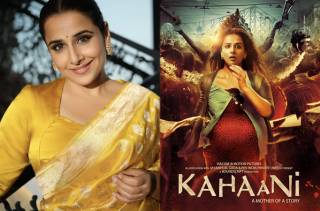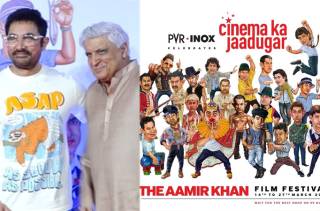
MUMBAI : With his rakish good looks and fondness for acting, he dreamed of making it big in Hindi films, and did achieve his aim -- but not the way he had intended.
He did play the hero in a handful of Punjabi and Hindi films, but earned more fame as a new kind of villain, with his trademark licentious gleam, lascivious sneer, and a voice that could switch from silken menace to wheedling entreaty.
A combination of circumstances nudged him into becoming a negative character, who should "look and behave like a villain, yet be good-looking enough for the heroine to fall in love with him" (as stated in his biography), and from there, Prem Chopra, who turned 87 on Friday, went on to become a Bollywood institution.
Around for six decades now -- and still going strong, he worked with (and been thrashed) by every Bollywood superstar, from Dilip Kumar to Dharmendra, Rajendra Kumar to Rajinikanth, and Shammi Kapoor to Amitabh Bachchan (not to mention Manoj Kumar, Sunil Dutt, Dev Anand, Rajesh Khanna and Jeetendra), while casting lecherous eyes on (and worse!) on top actresses from Nutan to Dimple Kapadia to Rekha. He has also appeared with the second or even third generation of his earlier co-stars.
Chopra is the only actor to have worked with the entire Kapoor family across four generations -- from patriarch Prithviraj down to Karisma, Kareena, and Ranbir -- as well as both generations of the Bachchans, the Dutts, the Deols, both Khannas (Rajesh and Vinod), and more -- a record unlikely to be surpassed!
And then, he is the only villain to dance at least twice with Hema Malini onscreen -- sending her, the unit, and later, audiences across the country, in splits.
He also went on to evolve the possibly first-ever catchphrase in Bollywood, when he introduced himself to the terrified eponymous heroine in Raj Kapoor's "Bobby" (1973).
"Prem naam hai mera, Prem Chopra", he told Dimple Kapadia in his sly, leering manner, and his sole dialogue in the film -- that he had complained about to co-actor and (brother-in-law) Premnath -- went on to become his another claim to fame: an Indian version of James Bond's self-introduction.
The same dialogue was reprised three decades later by Ranbir Kapoor in "Ajab Prem ki Ghazab Kahani" (2009) and Ajay Devgn in "All the Best: The Fun Begins" (with their characters bearing his name on-screen. Prem Chopra himself repeated it in a flashback scene in "Golmaal 3" (2010).
But how did Prem Chopra evolve into a villain?
Prem Chopra's family was one of the lucky ones to have gauged which way the wind was blowing in Punjab in the summer of 1947 and moved to Ambala with their goods a full month before full-fledged violence began. They lived in Simla too, where the young Chopra acted in college plays, once appearing opposite Amrish Puri.
Establishing himself in the film industry was not easy. His wish to try his luck in films -- when he was waiting for his B.A. results in 1955 -- failed to impress his parents. HIs initial foray into (the then) Bombay the same year was unsuccessful -- getting just a bit role in one film, and promises galore which never fructified.
It was not till 1960 that he was emboldened to return to Bombay and films -- but on the advice of his father, searched first for a job to sustain himself, and eventually became a supervisor in The Times of India's circulation department, responsible for eastern India.
His first appearance as a hero was in "Chaudhary Karnail Singh" (1960) -- a Punjabi film -- and though some small roles came his way, a break was still far off.
Legendary director Mehboob Khan offered him a starring role in his next film, but the project was delayed due to his illness. Chopra, as a result, accepted a small but villainous role in Manoj Kumar-starrer "Woh Kaun Thi" (1964) and its success sealed his fate.
After the film's premiere, an angry Mehboob Khan chided him for his impatience, prophesying he would now be labelled a villain only. Chopra then met another top studio chief, but his right-hand man drew him aside and asked him three questions: Did he want to be a popular actor, to make money, to have a house and a car? As Chopra said 'yes' to all three and then he was advised to forget about becoming a hero and continue as a villain.
The die was cast and thus was born one of the abiding screen presences of Bollywood -- an actor who invented and re-invented himself as a villain, interpreting each role with subtle nuances and different mannerisms, while even featuring splashes of comedy sometimes.
Despite his screen appearances across the 1960s -- including two of his non-villainous roles: that of the revolutionary Sukhdev in Manoj Kumar's "Shaheed" and of the younger son of King Porus in "Sikander-e-Azam" (both 1965) -- he hung on to his newspaper job till 1967. It was only after that did he go into movies full time.
Be it the murderous brother in "Jhuk Gaya Aasman" (1968), the wayward son in "Do Raaste" (1969), the debauched lover in "Kati Patang" (1970), the criminal mastermind in "Hare Raama Hare Krishna" (1971), the scheming royal in "Raja Jani" (1972), or "Bairaag" (1976) or "Kranti" (1981), the treacherous friend in "Do Anjaane" (1976), the scheming businessman in "Trishul" (1978) or "Dostana" (1980), the unconcerned mine owner in "Kala Patthar" (1979), and many other portrayals of scheming relatives, venal politicians, crooked businessman, and especially, rapists, his roles will remain in the minds of moviegoers.
Sometime in the early 1990s, however, while getting beaten by yet another hero, Chopra thought about how long he would continue doing this, and followed his predecessors, such as Pran, into shifting into character roles. It is in this form that the new generations have seen him -- as the truck driver in "Bunty and Babli" (2005) or the canny grandfather in "Rocket Singh" (2009) -- and will continue to for a long time, hopefully.
Three things marked him out -- he was an aficionado of Urdu poetry (Dharmendra calls him "Prem Awargi"), he used to write his dialogues out in Urdu script and tried them out in Hindi, Punjabi, and English; he was open to working with anyone; and he used to be solicitous of the heroes he was beating up onscreen. Once Amitabh Bachchan asked him why he was so curious, and pat came the reply that he expected the same concern from the hero when it was the latter's turn!
Source : IANS
















Add new comment